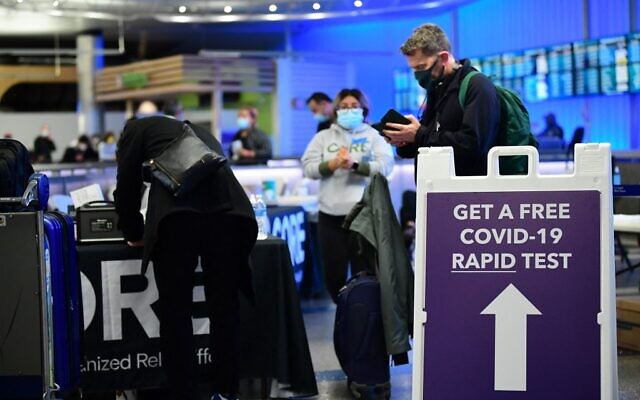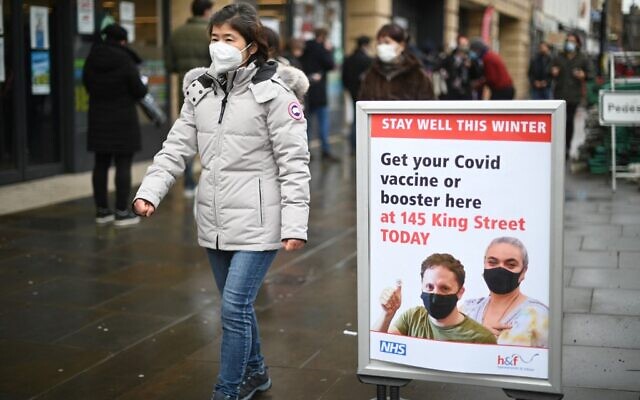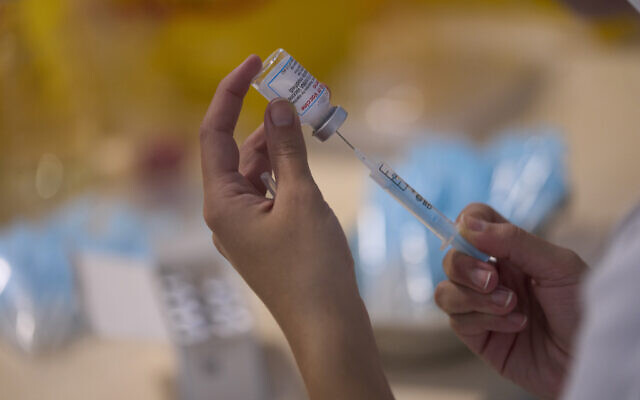PARIS, France — With lab tests still underway to determine the efficacy of the vaccines against Omicron, the Delta variant remains the dominant strain, and experts, governments and vaccine makers are urging people to take advantage of booster jabs where they are available.
Delta has proved able to evade some vaccine defenses against transmission better than the Alpha, Beta and Gamma COVID-19 variants. But jabs have remained highly effective at preventing severe illness from Delta, lowering the risk of overwhelming hospital resources.
With Delta still dominant in Europe, some countries are trying to accelerate their third jab campaigns.
UK prime minister Boris Johnson set a goal of offering a booster to all adults by the end of January and decreasing the waiting period between second and third jabs from six to three months.
In the US, Pfizer is seeking authorization for its jab to be given as a booster to 16- and 17-year-olds.
“It would be a serious mistake to slow down now,” said Alain Fischer, who coordinates France’s pandemic vaccine strategy.

Travelers arrive in the international terminal at Los Angeles International Airport on December 3, 2021, where a rapid COVID-19 testing site opened. (Frederic J. BROWN / AFP)
“Our message is: Don’t freak out, the plan remains the same: Speed up the administration of a third booster shot,” BioNTech co-founder Ugur Sahin said on Tuesday.
But Moderna chief Stephane Bancel told the Financial Times this week that he expected “a material drop” in the shots’ effectiveness against the new variant.
Lab tests to measure Omicron’s vulnerability to the vaccines in use today are underway, a process that should yield results in two to three weeks.
Pfizer, Johnson & Johnson and Moderna each say they have begun work on a new version of their vaccine specifically targeting Omicron — in case existing jabs don’t work against it.
When Delta arrived on the scene, Pfizer developed a jab especially for the variant but never rolled it out.
“Labs ended up relying on the fact that their jabs protected against severe COVID – but it still allows the virus to circulate,” said Bruno Canard, a coronavirus expert at French national research institute CNRS.
Pfizer has promised a new vaccine within 100 days but the roll-out will take far longer and won’t be in place before spring, Canard said.

A woman walks past signage outside a pop-up vaccination center for the COVID-19 vaccine or booster, in Hammersmith and Fulham in Greater London on December 3, 2021, as rollout accelerates in England. (Daniel LEAL / AFP)
“In the meantime, current vaccines protect against serious forms of COVID from the Delta variant,” he said.
Rising Delta cases had already forced European governments to reintroduce mandatory mask-wearing, social distancing, curfews or lockdowns, leaving businesses fearing another grim Christmas.
On Friday, the World Health Organization said that the Omicron variant has been detected in 38 countries but no deaths have yet been reported.
Authorities worldwide have rushed to stem the heavily mutated COVID-19 strain’s spread amid warnings that it could damage the global economic recovery.
In Israel, the Health Ministry said Friday that there were seven confirmed cases of the Omicron variant
The ministry said two of those cases were fully inoculated with three doses of the Pfizer vaccine (one traveler from South Africa, the other from the United Kingdom) and one person who traveled from Malawi had received AstraZeneca’s COVID-19 vaccine. The remaining four cases were people who had traveled from South Africa and were unvaccinated.
Also Friday, the United States and Australia became the latest countries to confirm locally transmitted cases of the variant, as Omicron infections pushed South Africa’s total cases past three million.

A syringe is loaded with the Moderna COVID-19 vaccine at the Isabel Zendal Hospital in Madrid, Spain, Monday, Nov. 29, 2021. The new potentially more contagious omicron variant of the coronavirus popped up in more European countries on Saturday, just days after being identified in South Africa, leaving governments around the world scrambling to stop the spread. (AP/Manu Fernandez)
The WHO has warned it could take weeks to determine how infectious the variant is, whether it causes more severe illness and how effective treatments and vaccines are against it.
“We’re going to get the answers that everybody out there needs,” WHO emergencies director Michael Ryan said.
The WHO said on Friday it had still not seen any reports of deaths related to Omicron, but the new variant’s spread has led to warnings that it could cause more than half of Europe’s COVID cases in the next few months.
The new variant could also slow global economic recovery, just as the Delta strain did, International Monetary Fund chief Kristalina Georgieva said on Friday.
“Even before the arrival of this new variant, we were concerned that the recovery, while it continues, is losing somewhat momentum,” she said.
“A new variant that may spread very rapidly can dent confidence.”
A preliminary study by researchers in South Africa, where the variant was first reported on November 24, suggests it is three times more likely to cause reinfections compared to the Delta or Beta strains.
The emergence of Omicron was the “ultimate evidence” of the danger of unequal global vaccination rates, Red Cross head Francesca Rocca said.
South African doctors said there had been a spike in children under five admitted to hospital since Omicron emerged, but stressed it was too early to know if young children were particularly susceptible.
“The incidence in those under-fives is now second-highest, and second only to the incidence in those over 60,” said Wassila Jassat from the National Institute for Communicable Diseases.
In the US, two cases involved residents with no recent international travel history — showing Omicron is already circulating inside the country.
“This is a case of community spread,” the Hawaii Health Department said.
US President Joe Biden on Thursday unveiled his plans to battle COVID-19 during the winter, with new testing requirements for travelers and a surge in vaccination efforts.
Article From & Read More ( Delta variant still dominates, experts say, urging third jab - The Times of Israel )https://ift.tt/3Ij41dk
Health
No comments:
Post a Comment